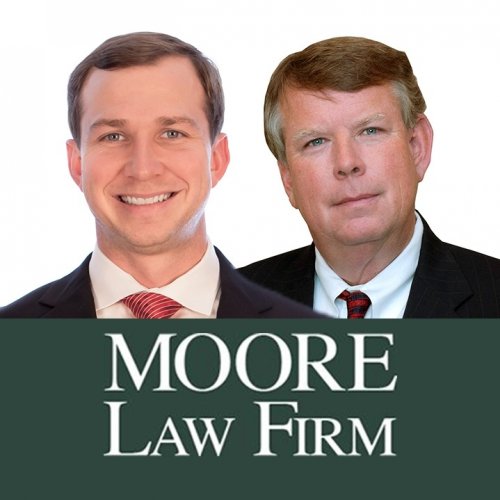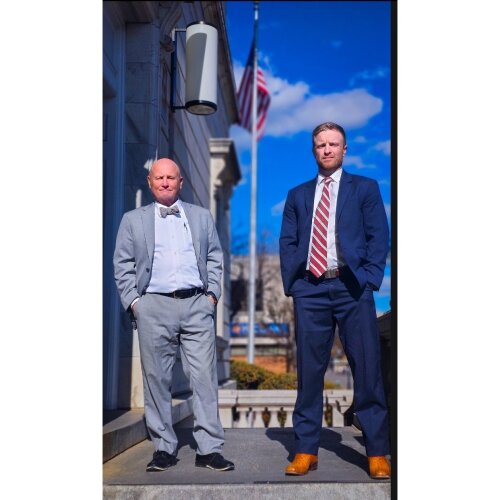Best Accidents & Injuries Lawyers in Alabama
Share your needs with us, get contacted by law firms.
Free. Takes 2 min.
Or refine your search by selecting a city:
List of the best lawyers in Alabama, United States
United States Accidents & Injuries Legal Articles
Browse our 1 legal article about Accidents & Injuries in United States written by expert lawyers.
- What to Do After a Serious Car Accident in the US: A Legal Step-by-Step Guide
- Call 911, get medical help, and do not admit fault. Photograph the scene, vehicles, and your injuries, and get witness names and the officer's report number. Report the crash to your insurer quickly. In no-fault states, PIP deadlines are short (e.g., Florida requires initial treatment within 14 days; New York... Read more →
About Accidents & Injuries Law in Alabama, United States
Accidents and injuries law in Alabama, commonly referred to as personal injury law, covers legal disputes arising when one person is harmed due to another's negligence or intentional action. This field of law allows victims to seek compensation for physical, emotional, and financial damages caused by car accidents, slip and falls, workplace injuries, medical malpractice, and other incidents. Alabama's laws are unique in some aspects, which can affect the process and outcomes of compensation claims. It is important for residents and visitors in Alabama to understand these laws when seeking justice after an injury.
Why You May Need a Lawyer
Navigating an accident or injury claim can be overwhelming, especially when dealing with insurance adjusters, medical bills, and lost income. Here are some common situations where legal assistance is especially valuable:
- You suffered severe injuries with high medical expenses or long-term consequences.
- Liability is disputed or unclear, such as in multi-car accidents or property injuries.
- The insurance company denies your claim, delays payment, or offers a settlement that seems too low.
- A government entity is involved, such as accidents on public property or with city vehicles.
- You experience emotional distress or lasting impairments that are difficult to quantify.
- There are questions about who is at fault or if you are being accused of contributing to the accident.
A qualified Alabama personal injury lawyer can help protect your rights, gather crucial evidence, negotiate with insurance companies, and represent you in court if necessary.
Local Laws Overview
Alabama has specific laws affecting accident and injury claims:
- Contributory Negligence Rule: Alabama is one of a few states that follow the strict contributory negligence rule. If you are found to be even one percent at fault for your injury, you may be barred from recovering any compensation from other parties.
- Statute of Limitations: You generally have two years from the date of the injury to file a lawsuit for most personal injury cases in Alabama. Missing this deadline typically results in losing your right to seek compensation.
- Auto Insurance Requirements: Alabama requires drivers to carry liability insurance. The minimum coverage includes $25,000 for bodily injury per person, $50,000 per accident, and $25,000 for property damage.
- Damage Caps: While there are no caps on compensatory damages (except against municipalities), there are limits on punitive damages in certain cases, such as a $1.5 million cap or three times compensatory damages, whichever is greater.
- Premises Liability: Property owners have a legal duty to keep their premises reasonably safe and warn of hidden dangers, but the extent of this duty depends on the visitor's status (invitee, licensee, or trespasser).
Understanding these laws is essential for anyone pursuing an accident or injury claim in Alabama.
Frequently Asked Questions
What should I do immediately after an accident in Alabama?
Ensure your safety and seek medical attention even if injuries seem minor. Report the accident to authorities if required, gather information from other parties and witnesses, take photos of the scene, and contact an attorney before discussing details with any insurance adjuster.
How long do I have to file a personal injury lawsuit in Alabama?
Most personal injury lawsuits must be filed within two years of the date of the injury. There are special exceptions for minors or certain cases involving government agencies, but it is crucial to act quickly.
Can I still recover damages if I was partially at fault for my accident?
Alabama’s contributory negligence rule means you cannot recover damages if you are found to have contributed in any way to the accident, even just one percent. This strict rule makes legal representation particularly important.
What types of compensation are available in an Alabama injury case?
You may be eligible for compensation for medical expenses, lost wages, pain and suffering, property damage, and in some cases, punitive damages designed to punish especially wrongful behavior.
How does the insurance claims process work after an accident?
You typically file a claim with the at-fault party’s insurance or your own insurer. The company investigates the incident, reviews medical records and statements, and may offer a settlement. It is wise to have an attorney review any offer before accepting.
What if the person who caused my injuries does not have insurance?
You may be able to use your own uninsured or underinsured motorist coverage, if you have it, for car accidents. Other cases may require a personal injury lawsuit against the individual, but recovery of compensation may be more challenging.
Should I talk to the at-fault party’s insurance company?
It is generally best to avoid giving detailed statements or signing any documents without legal advice. Insurance adjusters may use your statements against you to minimize or deny your claim.
What is the difference between compensatory and punitive damages?
Compensatory damages are intended to reimburse you for actual losses, such as medical bills and lost income. Punitive damages are awarded in rare cases to punish the defendant for especially reckless or malicious conduct.
How much does it cost to hire a personal injury lawyer in Alabama?
Most personal injury lawyers work on a contingency fee basis, which means they only get paid if your case is successful. The fee is usually a percentage of your settlement or award, along with any out-of-pocket costs.
What if I was injured on someone else’s property?
You may have a premises liability claim if the property owner failed to maintain safe conditions or warn of hazards. The property owner’s responsibility varies based on your status on the property and the circumstances of your injury.
Additional Resources
The following organizations and resources can provide further information and assistance for accident and injury matters in Alabama:
- Alabama State Bar Association - Lawyer Referral and Information Service
- Alabama Department of Insurance
- Alabama Department of Public Health - Injury Prevention Program
- National Highway Traffic Safety Administration - Alabama Division
- Local legal aid organizations and Pro Bono programs within Alabama
Next Steps
If you have been involved in an accident or sustained an injury in Alabama, take the following steps:
- Seek medical attention as soon as possible, even for minor symptoms.
- Document everything related to the incident, including photos, witness information, and medical records.
- Avoid discussing fault or detailed information with insurance company representatives until you have legal guidance.
- Contact a qualified Alabama personal injury lawyer who can evaluate your case, explain your rights, and provide a strategy tailored to your situation.
- Follow your attorney’s instructions carefully, and do not agree to any settlements or sign documents without review.
Prompt action can make a significant difference in the strength of your case and your ability to recover full compensation. Remember, Alabama’s laws are unique in how they handle accident and injury cases, so knowledgeable local legal guidance is crucial.
Lawzana helps you find the best lawyers and law firms in Alabama through a curated and pre-screened list of qualified legal professionals. Our platform offers rankings and detailed profiles of attorneys and law firms, allowing you to compare based on practice areas, including Accidents & Injuries, experience, and client feedback.
Each profile includes a description of the firm's areas of practice, client reviews, team members and partners, year of establishment, spoken languages, office locations, contact information, social media presence, and any published articles or resources. Most firms on our platform speak English and are experienced in both local and international legal matters.
Get a quote from top-rated law firms in Alabama, United States — quickly, securely, and without unnecessary hassle.
Disclaimer:
The information provided on this page is for general informational purposes only and does not constitute legal advice. While we strive to ensure the accuracy and relevance of the content, legal information may change over time, and interpretations of the law can vary. You should always consult with a qualified legal professional for advice specific to your situation.
We disclaim all liability for actions taken or not taken based on the content of this page. If you believe any information is incorrect or outdated, please contact us, and we will review and update it where appropriate.
Browse accidents & injuries law firms by service in Alabama, United States
Alabama, United States Attorneys in related practice areas.
Browse accidents & injuries law firms by city in Alabama
Refine your search by selecting a city.















